Return to the search form Return to your search results
Ancient Perspectives, Modern Eyes
Fast Facts
Session Offered:
Summer (with a 1-credit spring course)
Location:
Greece
Credit:
Resident
Eligibility:
Degree seeking Honors students and/or Classical Languages or Ancient Civilization majors or minors, UI GPA 2.75, enroll in/complete HONR:2600, 1 semester of college-level study, see application tab for full eligibility criteria
Application Due:
January 30, 2026
Academic Program
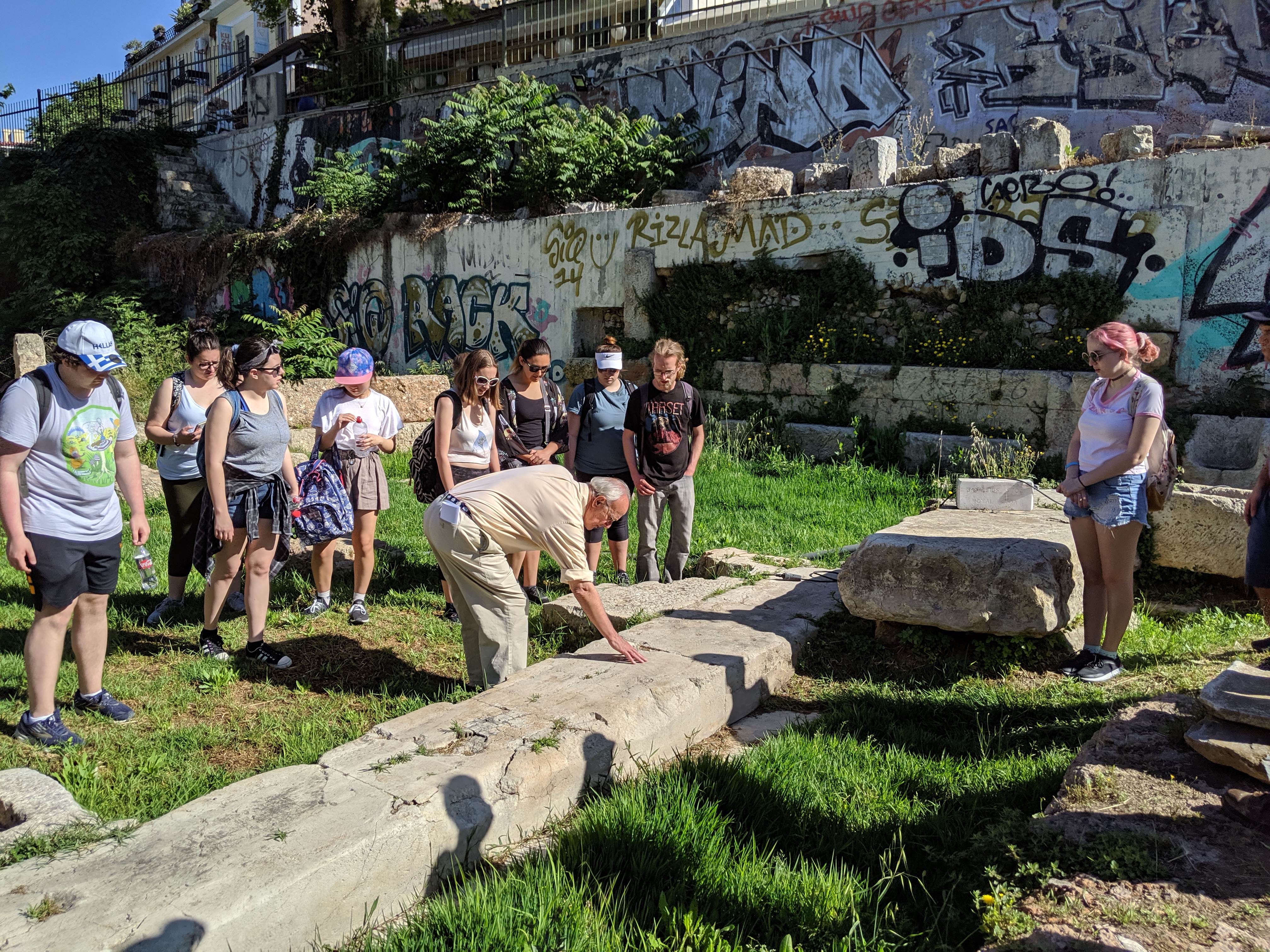
Designed specifically for Honors students and Classical Languages or Ancient Civilization majors/minors, this course will take students on a 3-week, faculty-led tour of Greece.
Students will reconstruct and interpret life in ancient Greece through the study of language, literature, art history, and archeology and visit sites in Athens, Delphi, Olympia, and more.
In order to prepare for this trip, all participants will enroll in a 1 semester-hour course during Spring semester. The course will meet to discuss the sites, objects, and sources that we will encounter.
The Greece trip is a 3 semester-hour course offered every other Summer (even years). Combined, these two courses will place ancient worldviews within a modern context in order to gain an appreciation for the landscape, history, and significance of ancient Greece.
The course satisfies an Honors course requirement as well as Honors experiential credit.
Additionally it fulfills requirements for at least two majors (Classical Languages and Ancient Civilizations) and five minors (Ancient Civilizations, Greek, Latin, Classical Languages, Health and the Human Condition).
Faculty Director
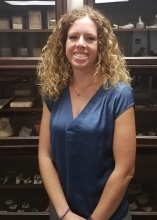
Debra Trusty came to the University of Iowa in 2017 as a lecturer of Classics. Her research interests include Bronze Age Greek archaeology and material culture, Mycenaean ceramics, ceramic studies and analyses, prehistoric cooking ware vessels, early state political economies, craft production, food preparation and consumption, and ancient technologies.
Debra's dissertation focused on the importance of cooking ware vessels in Mycenaean political economy and was entitled Ceramic Analysis of Cooking Ware Vessels and its Implications for Early State Political Economies. She received several grants for her research, including a National Science Foundation Dissertation Improvement Grant.
Debra co-edited a recently published volume with Julie Hruby (Dartmouth) titled Cooking Vessels to Cultural Practices in the Late Bronze Age Aegean. She is involved in museum and fieldwork for the Petsas House excavations, directed by Kim Shelton (Berkeley) and has past experience with the Saronic Harbors Archaeological Research Project directed by Daniel Pullen (Florida State University) and Thomas Tartaron (University of Pennsylvania). She received her BA from the University of Evansville and MA and PhD from Florida State University.
Cultural Activities
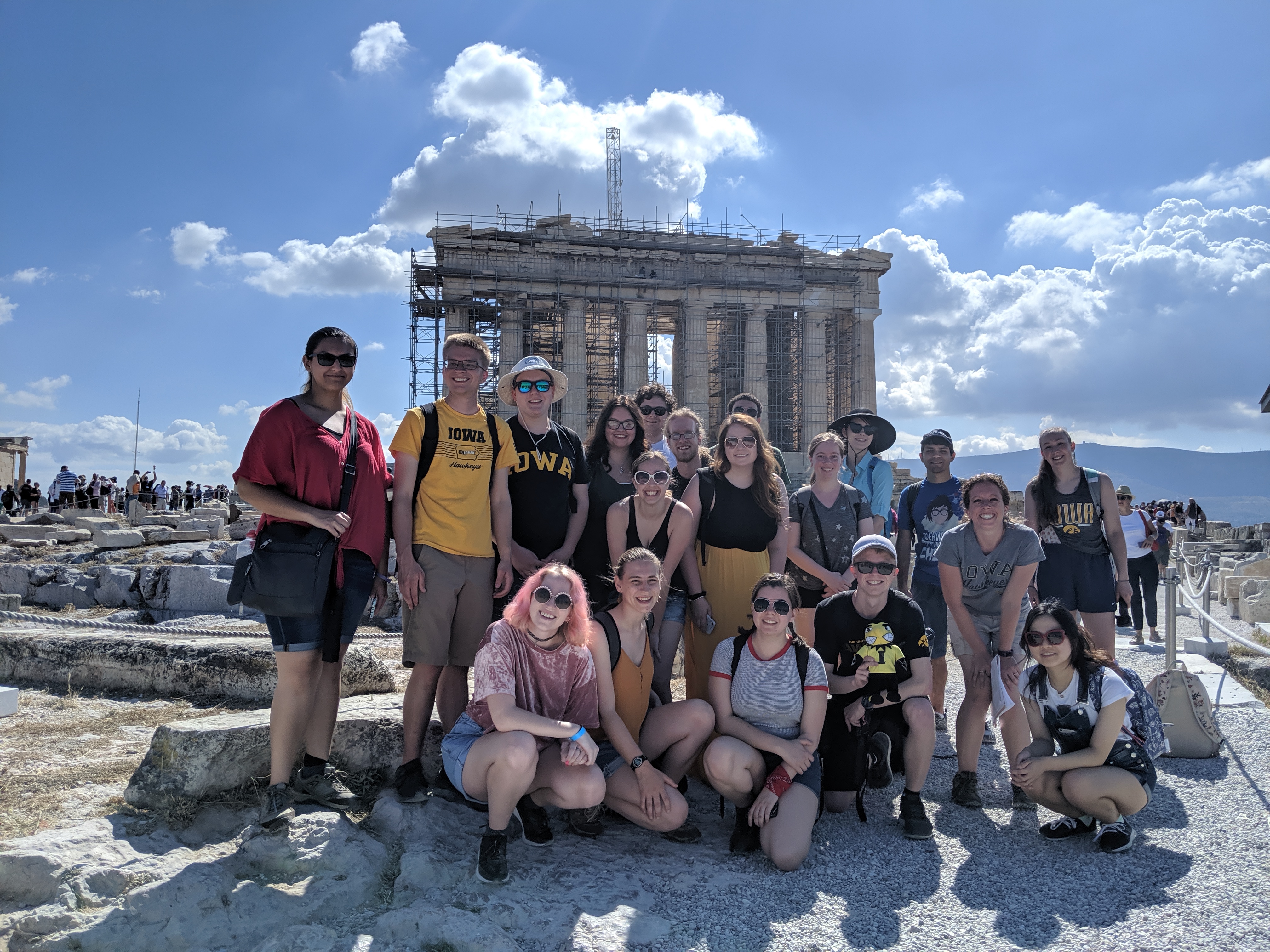
Students will engage in a variety of activities focused on ancient and modern cultural life. Activities in Athens during the first two weeks of the course will include:
- A walking tour of central Athens, where students will see first-hand how ancient and modern Athens interact in a bustle of excitement and energy
- Instructor-led tours of the Acropolis (which holds the famous Parthenon and other structural marvels), the ancient Agora, the Kerameikos, the Temple of Olympian Zeus and many other sites
- An outing to Aristotle’s Lyceum, where some of history’s most important writers and thinkers came to study for hundreds of years throughout antiquity
- A journey through the hills of Athens where the ancient Athenian Assembly met to discuss laws and make important political decisions
- Visits to some of the best museums Athens has to offer, including the new world-renown Acropolis Museum, the National Archaeological Museum, and the Epigraphic Museum
- Optional excursions include attending a local flea market, touring Byzantine churches around the city, and watching a movie at an open-air theater at the base of the Acropolis!
Activities outside of Athens during the third week of the course may include:
- A tour of the Attic Coast with stops at Marathon, Brauron, and a sunset view of Sounion
- A visit to the archaeological site of Delphi, to explore the magnitude of its contributions to ancient civilizations
- A visit to the archaeological site of Olympia, home of the Olympic Games and the sanctuary of Zeus
- Exploring the ancient sites of Mycenae, Epidaurus, Corinth, and Eleusis
- Stays on the islands of Naxos and Aegina
- A visit to the island of Mykonos and the archaeological site of Delos - birthplace of Apollo and Artemis
Program Dates
Summer 2026 dates: The program will begin in Greece on May 28, 2026 and run until June 22, 2026. In order to arrive in Greece on May 28, students will likely need to depart early on May 27, 2026.
For More Information
Information Sessions
To learn more about the program, join one of the upcoming information sessions:
- Tuesday, October 7, 2025 at 4:00pm: Blank Honors Center room 420B
- Thursday, October 9, 2025 at 2:00pm: Blank Honors Center room 440
- Monday, October 13, 2025 at 5:00pm: Zoom
Program video
You can also learn more about this program by viewing this short promotional video.
Program Contacts
For more details about this program, please contact Faculty Director, Debra Trusty at debra-trusty@uiowa.edu or Program Coordinator, Lindsay Budde at lindsay-budde@uiowa.edu.
Athens
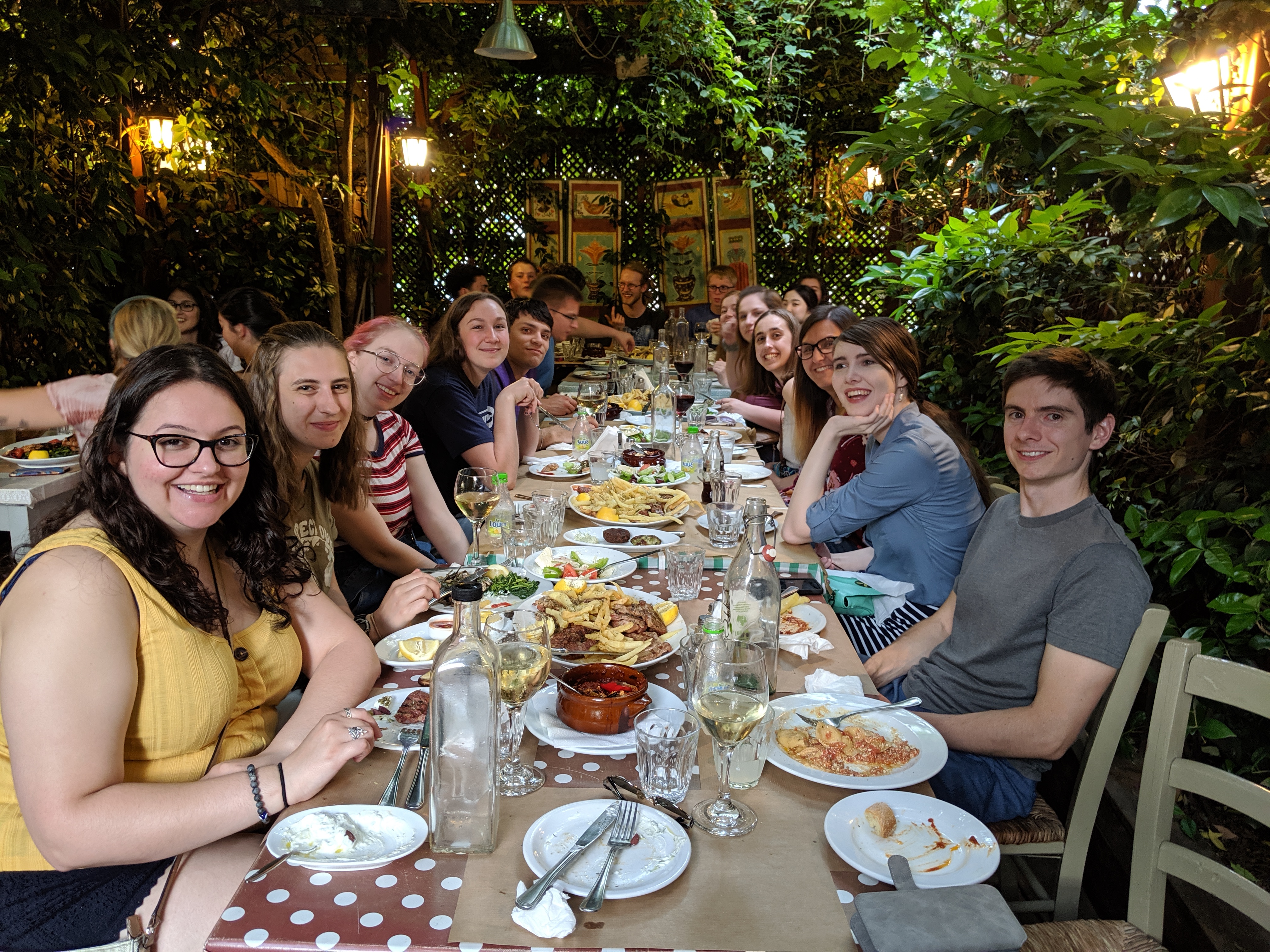
The capitol and largest city in Greece, Athens is one of the world's oldest cities with a recorded history spanning 3,400 years. The heritage of the classical era is still evident in the city, represented by ancient monuments and works of art, the most famous of all being the Parthenon. The Parthenon is the greatest and finest sanctuary of Ancient Athens. Dedicated to its patron, the goddess Athena, it still dominates the center of the modern city from the rocky crag known as the Acropolis.
Olympia
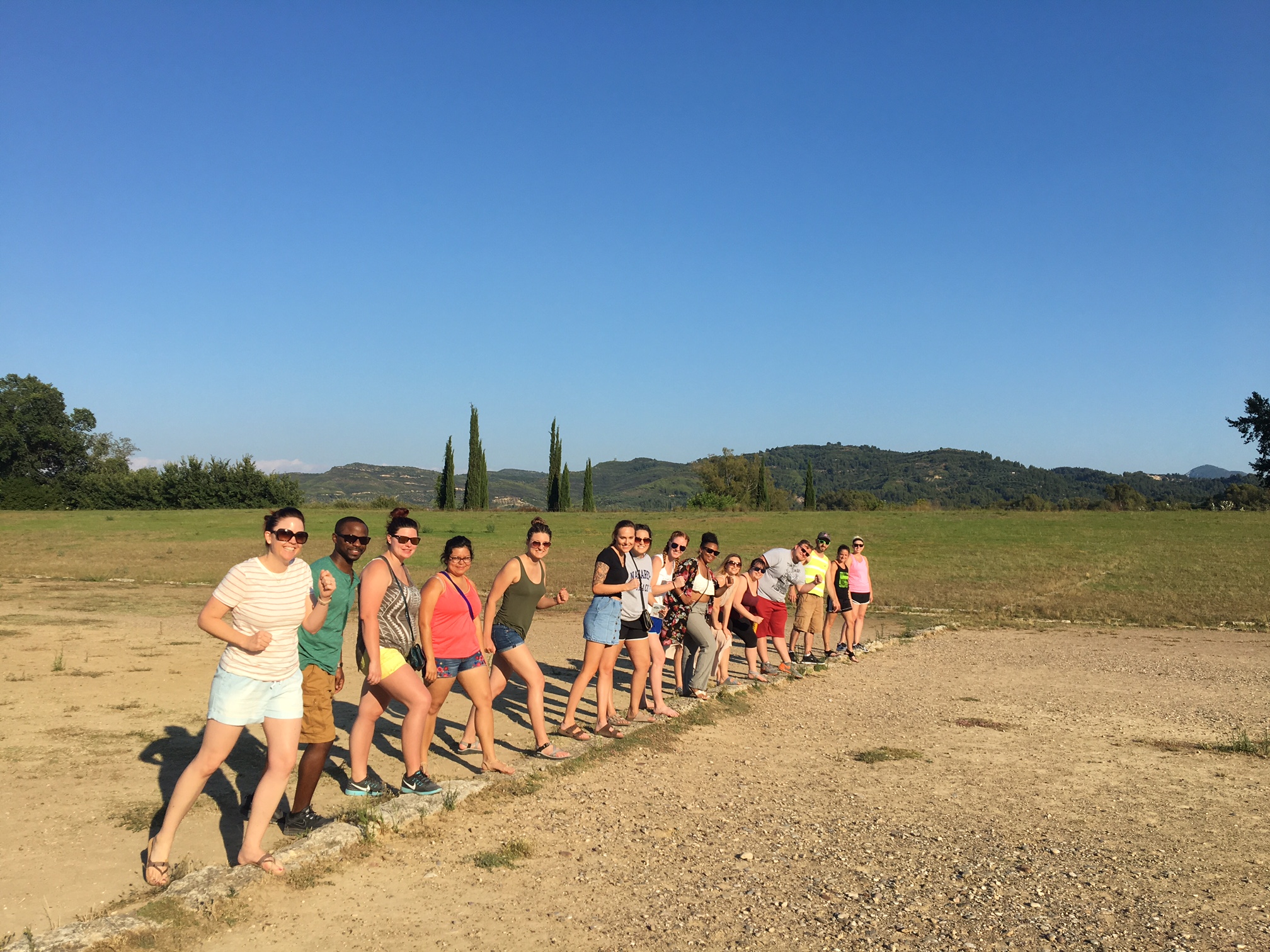
Olympia was the site of the ancient Olympic Games, which were celebrated every four years by the Greeks. This Pan-Hellenic sanctuary has been culturally established as the most important religious, political, and athletic center, with a history that dates back to the end of the Neolithic times (4th millennium BC).
The famous sanctuary became the center of worship of Zeus, the father of the twelve Olympian gods. For the Altis, the sacred grove and the center of the sanctuary, some of the most remarkable works of art and technique have been created, constituting a milestone in the history of art.
In this universal place, the Olympic Idea was born, making Olympia a unique universal symbol of peace and competition at the service of virtue. Here, too, prominence was given to the ideals of physical and mental harmony, of noble contest, of how to compete well, and of the Sacred Truce; values which remain unchanged in perpetuity.
Epidaurus
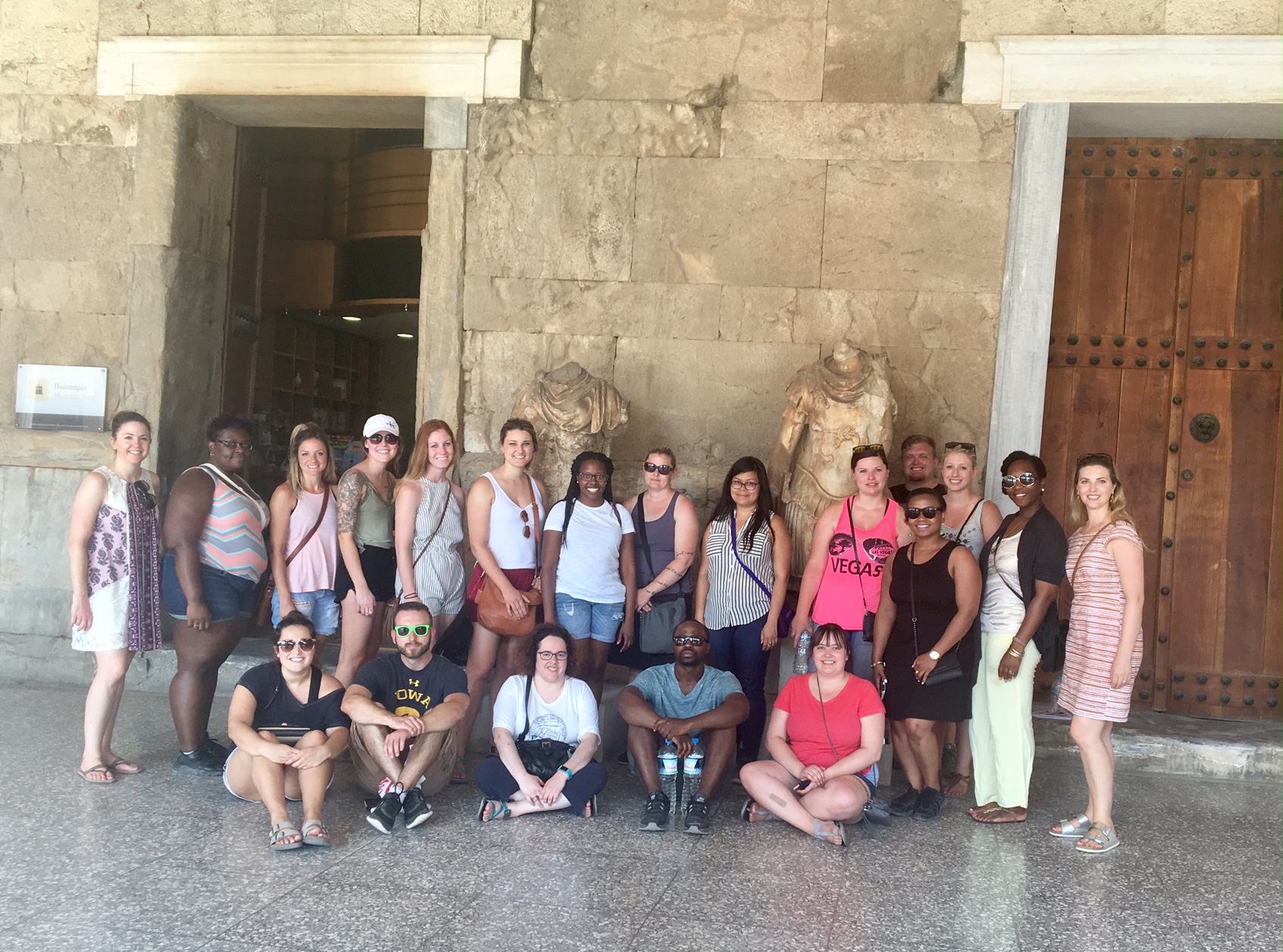
In a small valley in the Peloponnesus, the shrine of Asklepios, the god of medicine, developed as the most famous healing center of the Greek and Roman world. The site — considered the birthplace of medicine — comprises a series of ancient monuments spread over two terraces and surrounded by a preserved natural landscape.
Among the monuments of the Sanctuary is the striking Theatre of Epidaurus, which is renowned for its perfect architectural proportions and exemplary acoustics. The vast site, with its temples and hospital buildings devoted to its healing gods, provides valuable insight into the healing cults of Greek and Roman times.
Delphi
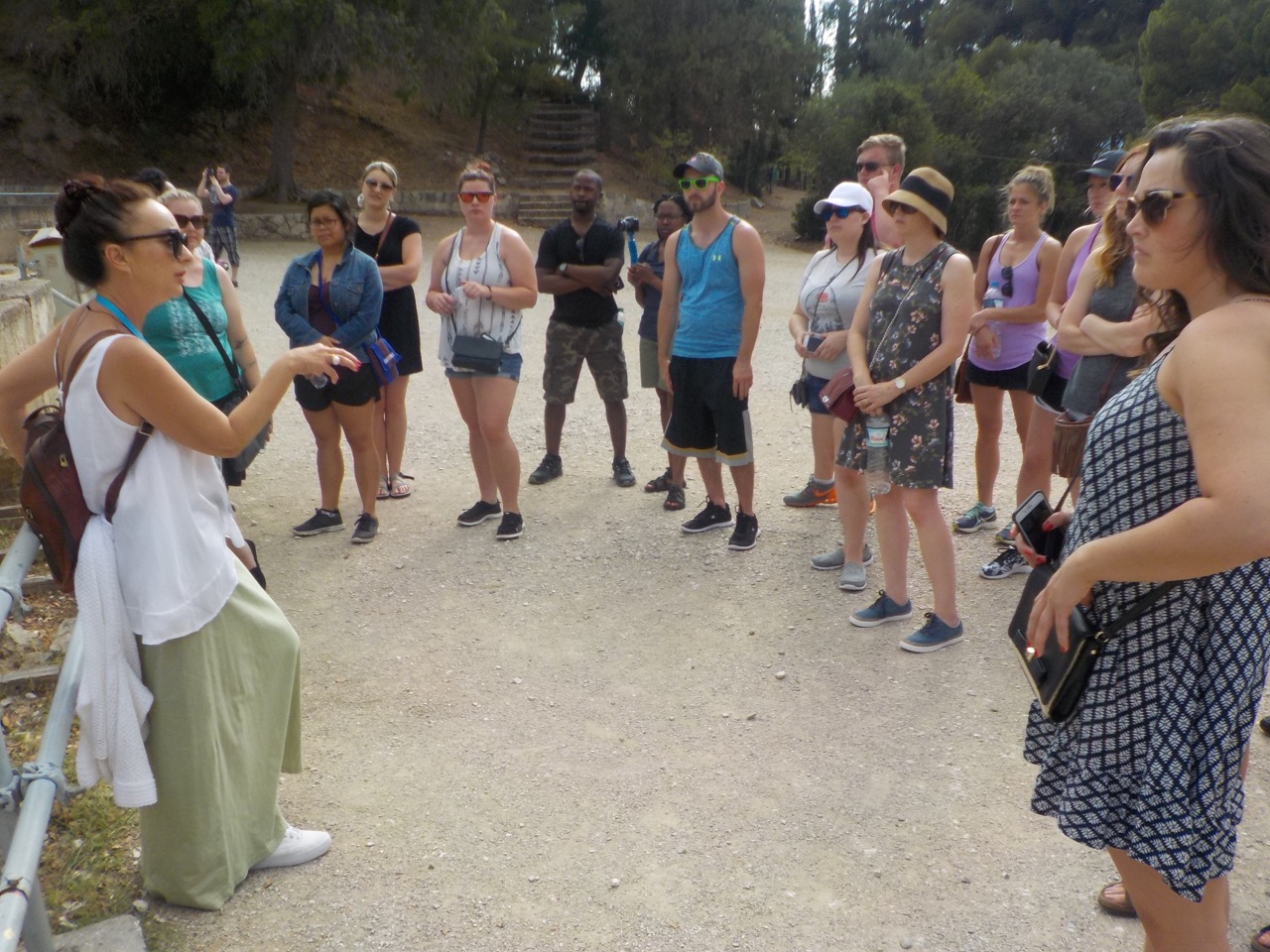
The pan-Hellenic sanctuary of Delphi, where the oracle of Apollo spoke, was the site of the omphalos, the 'navel of the world.' The oracle was delivered by the Pythia, the priestess, and interpreted by the priests of Apollo. Cities, rulers, and ordinary individuals alike consulted the oracle, expressing their gratitude with great gifts and spreading its fame around the world.
Blending harmoniously with the superb landscape and charged with sacred meaning, Delphi in the 6th century BC was indeed the religious center and symbol of unity of the ancient Greek world.
US Department of State Country Information
The US Department of State provides safety and security information for every country of the world to help you assess for yourself the risks of travel. Each country information page contains a Travel Advisory, Alerts, and other important details specific to that country that could affect you.
Pay close attention to the entry and exit requirements, local laws and customs, health conditions, and other details to help decide whether traveling to any given country is right for you. Non-US citizen travelers may also wish to seek guidance from the embassy of their country of citizenship. The UI International Travel Policy for Students addresses restrictions on student travel to high-risk locations and engagement in high-risk activities abroad.
Living Arrangements
Students stay in hotels, sharing a double occupancy room with another course participant or (more rarely) in a triple occupancy rooms with two other course participants. All hotel rooms have private bathrooms. If you have concerns about room sharing, please contact the program coordinator prior to confirmation deadline.
Passport

If you do not have a passport, it is important that you apply for one as soon as possible to ensure you receive it before the program begins. US citizens can find more information about how to apply for a passport on the US Department of State’s website.
Important notice for students without a valid passport or whose passport will expire within the next 12 months:US citizens can find more information about how to renew a passport on the US Department of State’s website.
Students with a valid passport should check the expiration date. Passports must be valid for at least 6 months AFTER the anticipated return to the US from studying abroad. If your passport is not valid for at least 6 months after your anticipated date of return to the US, you must renew your passport.
Expedited processing service is available for US passports (although this still takes several weeks and is at an additional cost). UI Study Abroad encourages students to ask the passport agency at the time of application whether expedited service is recommended.
Non-US Citizens
Students who are not US citizens should contact their consulate for more information if they need to get a new passport or renew their passport. You should also check with the consulate to see if you need a visa to enter Greece.
Travel Arrangements
Students will receive instructions for booking flights after the confirmation deadline. A suggested group flight will be shared with the group and students will make their own arrangements.
Those who do not have extensive travel experience are encouraged to book the suggested group flight. One airport pick up and drop off will be based on the suggested group flights. If you are not taking the suggested group flights, be aware that you will need to arrange your own travel to/from the airport and understand that this will incur an additional cost.
Local Transportation
Transportation for all course activities is provided, including a group airport pickup and drop-off at the beginning and end of the course for those on the suggested flight.
COVID-19 Protocols
For courses traveling abroad, participating students and faculty will be required to follow host country laws and procedures regarding COVID-19. Requirements of each host country are subject to change with little notice. Requirements may include COVID-19 testing, proof of vaccination, or quarantine/isolation to enter the country or to access certain facilitates and services.
Eligibility
This course is designed specifically for degree-seeking Honors students and Classics majors/minors who meet the following requirements:
- Minimum 2.75 cumulative & UI GPA: Students must have at least a 2.75 GPA. Students with a GPA of a 2.74-2.5 may be considered on a case-by-case basis.
- Completion of at least one semester of college-level study: Students are required to have at least one semester of college-level study completed.
- Physical Requirments: This program includes a significant amount of walking. Previous students have recorded walking up to 8 miles in one day. Participants also need to be able to tolerate direct sunlight and heat (or have methods to reduce the effects of these i.e. hat, umbrella, sunscreen, fan, etc.). For more information about the physical requirements and potential accommodations, please reach out to the faculty leader or safety-abroad@uiowa.edu.
- Good academic and disciplinary standing: Students must be in good academic and disciplinary standing at the University of Iowa. Academic and disciplinary history will also be considered when determining whether a student is prepared to represent the University of Iowa as part of this program. Students who, even after being accepted into a program, are put on either academic and/or disciplinary probation for any period of time overlapping with the study abroad program dates are ineligible to study abroad. In these cases, students must forfeit their acceptance, will not be allowed to study abroad, and are wholly responsible for any and all financial expenses incurred.
- Demonstrated preparedness and maturity: Students must meet entry requirements for the countries and venues visited by the program. Students must demonstrate preparedness to take on the heightened responsibilities associated with international study and travel and demonstrate a commitment to behave responsibly abroad while respecting cultural differences. Students are expected to obey both local laws and program directives conveyed to participants before and during the program. The University of Iowa Code of Student Life applies to all program participants while abroad.
- HONR:2600: All participants must enroll in and attend a 1-credit introductory course in spring 2026 to prepare you to travel.
- Approval by faculty director and UI Study Abroad: Applications will be reviewed by the program’s faculty director, and students will be accepted based on their eligibility and application materials.
Cost
Included in the course fee:
- Academic instruction and guided tours
- 3 semester hours of UI credit
- Accommodation
- Ground transport from and to Athens airport (if on the suggested flights)
- Transportation for all course activities
- Welcome + Farewell dinners
- Breakfasts at accommodation
- Cultural excursions
- 24/7 staff support
Not included in the course fee (out of pocket expenses):
- Round-trip airfare
- Meals not included in the course fee
- Personal expenses and personal travel
- Any medical appointments needed prior to departure
- Passport fees
Key points to note are:
- The Course Fee, Study Abroad Fees, CISI Insurance are billed to student’s U-bills after Summer Registration.
- All other amounts are estimated out-of-pocket expenses and will vary for each participant.
The total estimated costs for the 2026 program (both U-bill charges and out-of-pockets expenses) are available on the  2026 Cost Sheet. Financial Aid uses this document to determine participating students' funding awards for course.
2026 Cost Sheet. Financial Aid uses this document to determine participating students' funding awards for course.
Scholarships & Financial Aid
Most financial aid (scholarships, grants, and loans) is applicable to study abroad programs. Please check the Study Abroad website for information on financial aid and how it may be applied to studying abroad. You are also encouraged to speak with someone at the Office of Student Financial Aid to explore financial aid options.
Scholarship opportunities are available for study abroad participants. Please explore Study Abroad’s websites for UI Study Abroad Scholarship Opportunities and Non-UI External Awards.
How to Apply

*The application will open December 1, 2025.
The application process requires:
- A completed online application, including three short answer responses
- A photo of the information page of your passport (or an acknowledgement that you have begun the process to get/renew a passport)
- A $50 nonrefundable application fee
Application Deadline
Summer 2026 Deadline: January 30, 2026
Acceptance & Confirmation Materials
Acceptance and confirmation materials will be distributed after the next application deadline.
Health & Safety Planning
All students preparing to study abroad should review the following:
Iowa Regents CISI Health Insurance Information
Students are also encouraged to complete the Health Preparation Guide for International Travelform with their medical practitioner. This document is intended to help you plan for your medical needs abroad. Please DO NOT turn this form in to UI Study Abroad.
Visa
At this time, U.S. passport holders do not need to obtain a visa for a stay in Greece of less than 90 days. Non-U.S. passport holders should consult with the UI Study program coordinator and their home consulate.
Orientation
In order to prepare for your time abroad, you are required by the University of Iowa to complete two orientations. These are in addition to orientations provided by CEPA upon arrival in Greece. See below for more information.
Online Education Abroad Pre-Departure Orientation
You are required to complete the International Programs online “Education Abroad Pre-Departure Orientation” course distributed through ICON prior to departure. This orientation is mandatory for all students going abroad under the auspices of the University of Iowa. It covers many practical matters about living overseas, such as health and safety, communication, money, goals and much more. You will be enrolled in this course by International Programs and an email will be sent to you once enrolled. If you have any questions you can email safety-abroad@uiowa.edu.
Program-Specific Orientation
During this in-person orientation, students will receive information on registering for their program, payment and billing, and other logistical matters. Students will also have the opportunity to ask the program director, questions about academics, Greek culture, and other general topics.
